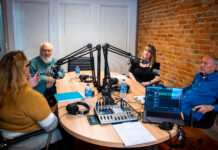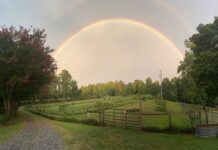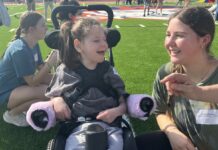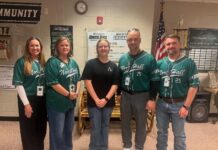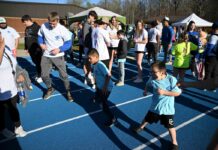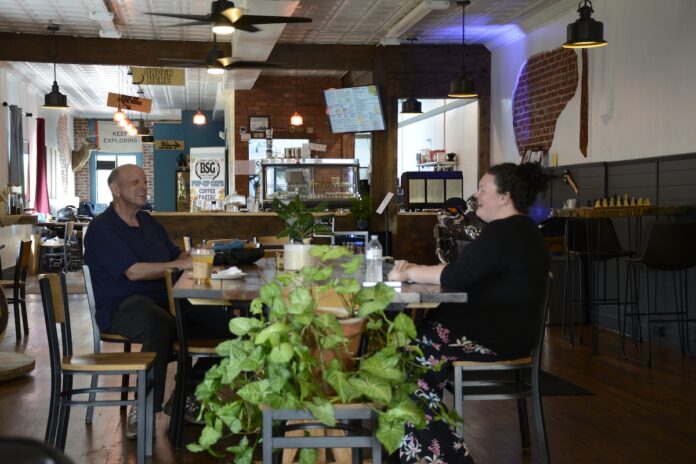
Michael Depp, nine years old, careened about the BSG coffee shop in Cornelia on a recent Saturday morning, seemingly unmindful of his mother’s wishes that he stick close to her, or take the toys out of his mouth, or listen to what the other children are saying. But once he is hugged and cradled to her chest, he does his favorite thing: reciting facts and figures about America’s 47 presidents.
Michael, like the four other boys visiting the coffee shop that day with their parents and caregivers, has autism spectrum disorder (ASD).
Spectrum Social Club
The “Spectrum Social Club,” organized by local entrepreneur Frank Wolf, meets monthly at the coffee shop over drinks and pastries, with the primary aim being simply to give parents somewhere to go to socialize, relax a bit, and talk over the unique childcare and life issues that brought them there. The boys—girls are welcome, but none showed that day—exhibit a wide range of behavior.
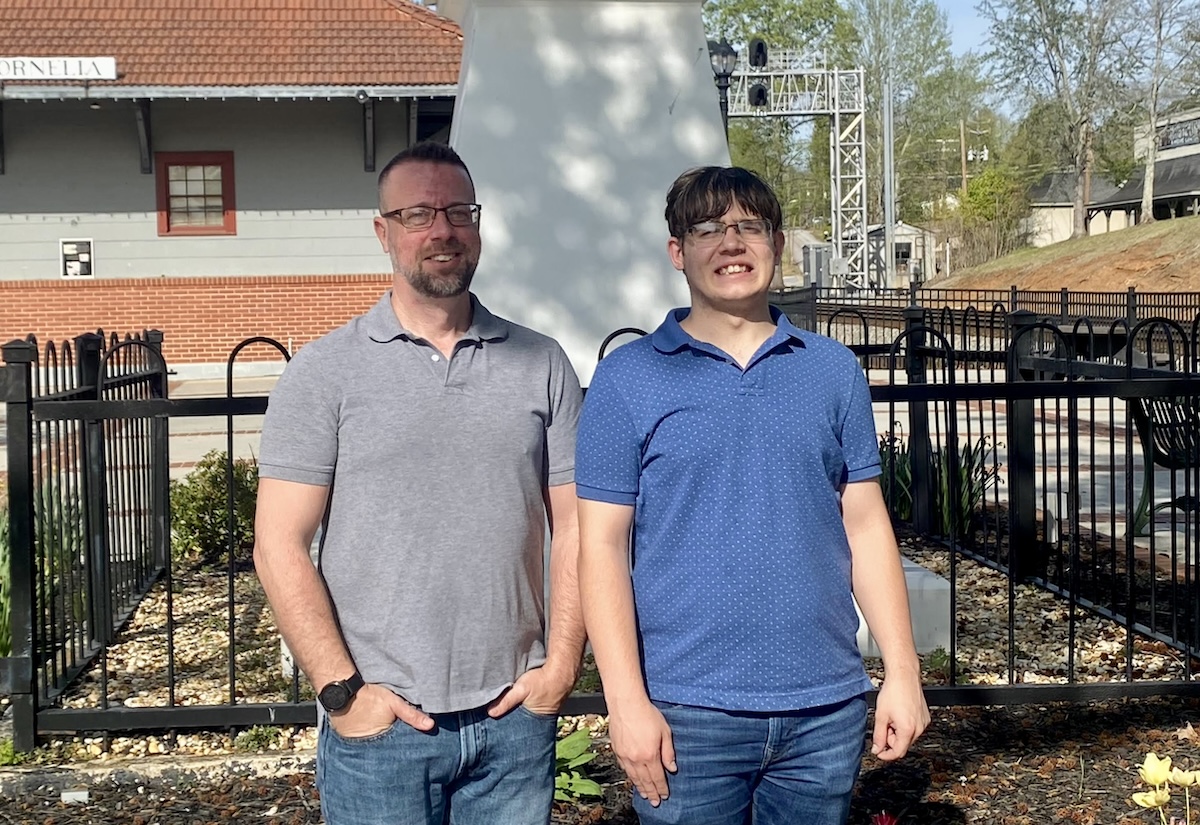
Michael doesn’t talk much, but Aidin, Wolf’s son, engages extensively with everyone else in the room. Aidin calls himself a “pinball guy,” and exults about his frequent trips to such pinball meccas as Asheville to indulge his passion (he also recites a torrent of facts about the recent North Carolina storms and flooding.)
Michael’s mother, Sarah Depp, says he was born 17 weeks early, along with a twin, Gabriel. “He didn’t talk at two,” she says. “He made some eye contact, but mostly, he liked to spin in place,” a common feature of autism.
“We knew he was going to get the diagnosis,” Depp says.
No two kids are the same
Sarah said one big thing that meeting with the Spectrum Social Club has reminded her of is that “no two kids are the same.” Some are verbal, some are silent; some take great interest in other people—or more often, their activities—while others keep largely to themselves.
For Michael’s part, she says, he has an encyclopedic knowledge of the U.S. presidents, as she demonstrated when she quizzed him on when Ulysses S. Grant came in the succession (18th) and who President Lincoln reminds him of (his own father, John Depp).
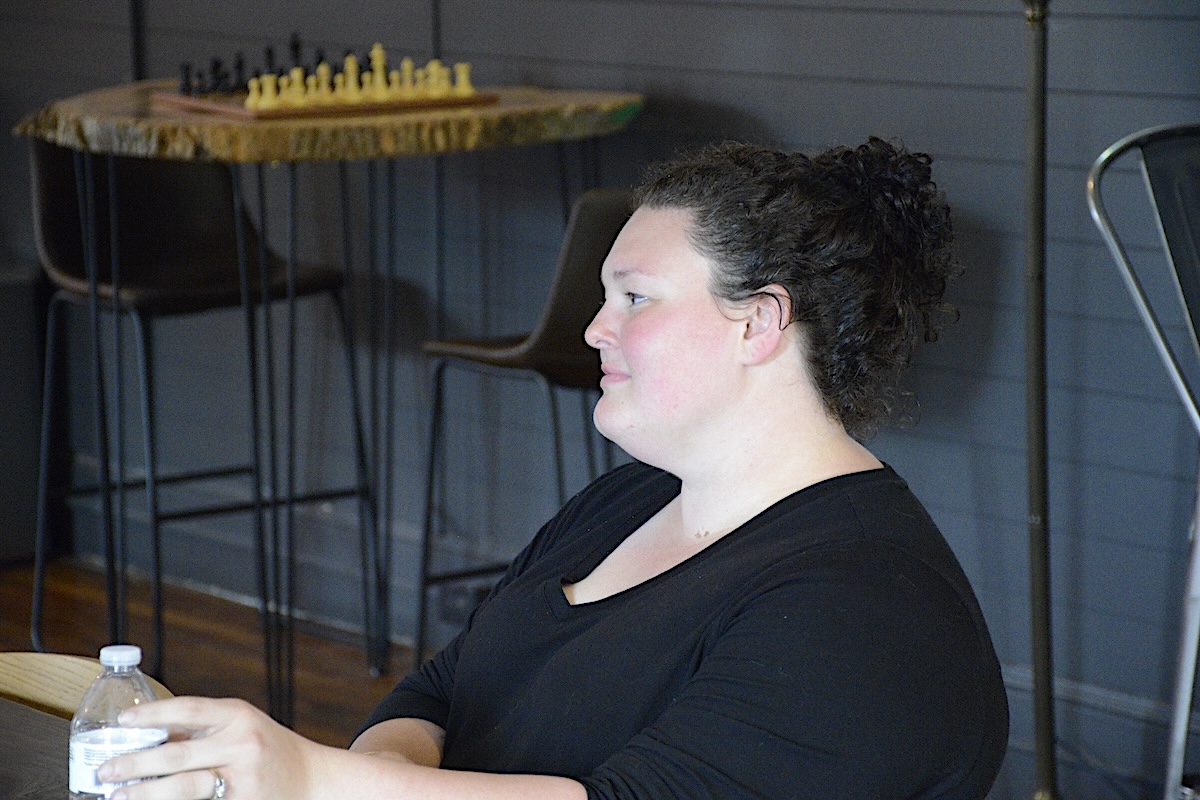
Michael’s twin, Gabriel, is not in the coffee shop this day, but he’s also on the spectrum. Sarah says Gabriel does not speak but uses a specialized tablet to communicate with symbols and words. They have an infant brother who also is showing signs of autism, their mother said, not sounding surprised about the confluence of three autistic kids in one family. Autism Speaks, the national advocacy organization, estimates that some 60 to 90 percent of cases of ASD have a genetic component.
Space Camp dreams
Noah Garrett, a 3rd grader at Rabun County Elementary School, tries to engage with all the other boys, displaying his tablet, loaded with cartoons and video games. His big ambition, says his aunt, Dottie Clark, is to attend Space Camp some upcoming summer at the U.S. Space & Rocket Center in Huntsville, Alabama. She just needs to make sure the staff there will supervise and deliver the medication Noah needs for the attention deficit disorder that accompanies his autism diagnosis.
Clark says Noah was diagnosed in 2022. “He’s Level 1—the highest functioning category,” she says, “but we noticed a lot of things earlier than that. He was obsessed with certain cars and toys; he would only eat certain foods, and those had to be lined up on his plate. When he was very young, he would bang his head on the floor, and he never made eye contact.” Yet, the whole time, Noah was a superior reader, and he excels at math and science and maintains a fascination with the universe.
ASD indicators
Autism, or autism spectrum disorder (ASD), refers to a broad range of conditions characterized by differences in social skills and communication.
Some typical indications are:
- Avoiding eye contact;
- Not smiling in return of a smile;
- Repetitive motions, such as flapping hands, or rocking their bodies;
- Restricted interests (e.g., getting “stuck” on one interest, sometimes to extremes);
- Talking less than other children;
- Finding it hard to say how they feel.
- Most experts note that autism can be harder to spot in girls, but there’s plenty of it; still, most diagnosed people are male.
If Northeast Georgia, with its 775,000 residents in 13 counties, is like the rest of America, there are more than 20,000 autistic children and adults in the region; that’s 1 out of 37. Many of them are undoubtedly undiagnosed.
‘You need balance’
The breakfast group’s founder, Frank Wolf, has had some hard jobs before—he was an Army medic in the Afghan War in 2011-2012. But parenting an autistic kid is its own challenge. “For many parents of kids on the spectrum, says Wolf, “a lot of life is frustration with not knowing the right avenue to care for your kids.”
He notes that, like him, a disproportionate number of parents in the group are divorced or single, and many have no one to step in as caretakers of their kids, even occasionally.
“It’s really hard to find the time to give your kids the care they need. You need balance,” Wolf says.
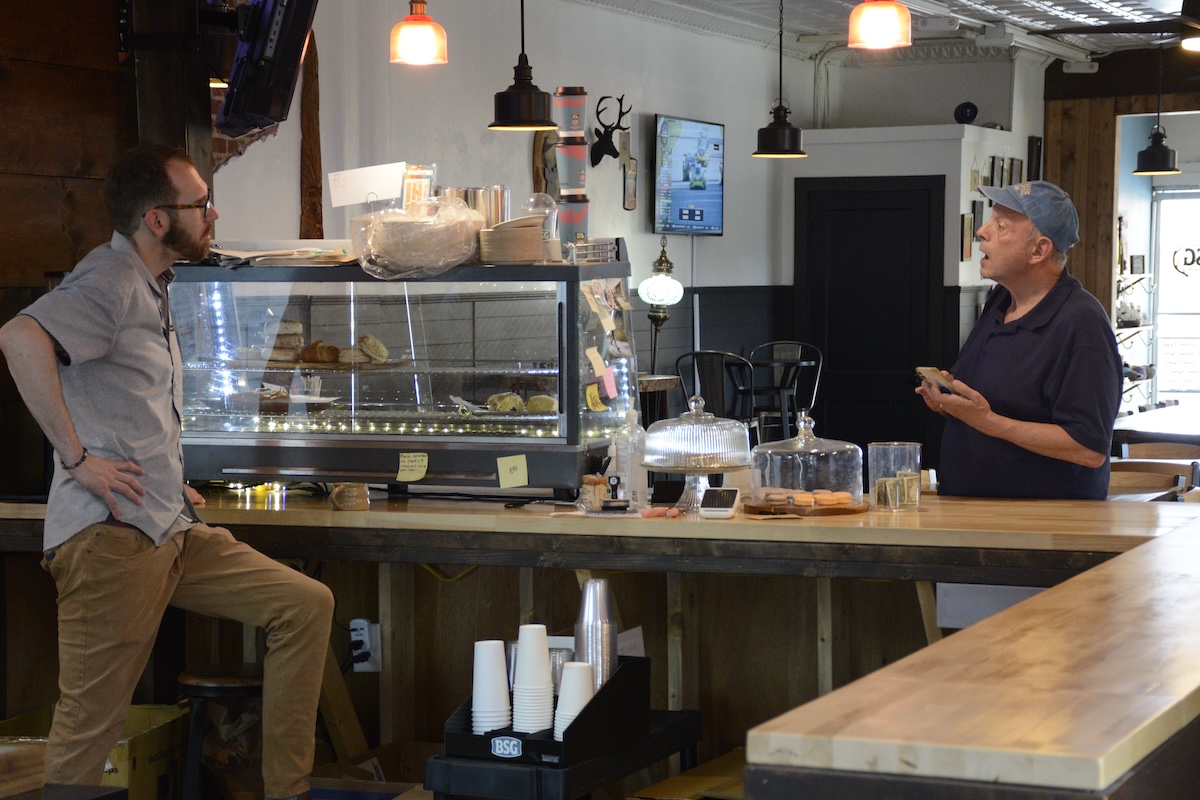
BSG Coffee & Café owner Zach Staggs says he’s thrilled to offer his space to the Spectrum Group, like other community groups that make use of his spacious establishment, along with a music jam on Thursday nights. Staggs takes a break to talk with a visitor only after two hours of focused effort, making coffee, merrily chatting up customers, attending to his staff’s needs, and keeping food and drink supplies full.
Staggs says having groups in to enjoy one another’s company is one of the reasons he opened. He feels for people with life challenges and mentions his brother, Jake, who helped him open the shop. Jake has a rare genetic disorder, 22q11.2 deletion syndrome or DiGeorge syndrome, which can affect speech and other neurological functions. As for himself, Zach laughs about his pace of work when asked if he has anyone close to him on the spectrum. “Are you looking at me?” he chuckles, then eyes a coffee shortage at one of the machines and hustles back to it.
High hopes
Dottie Clark, Noah’s aunt, says she has high hopes for him; a highly precise and mathematical thinker, Noah can play any tune on a keyboard after hearing it once. And he has another, more marketable skill: “I think he’ll go to college and be an engineer of some kind; he can take anything apart and put it back together. He has an engineering mind.” Interestingly, a University of Cambridge study in 2014 found that engineering was “the most autistic profession.”
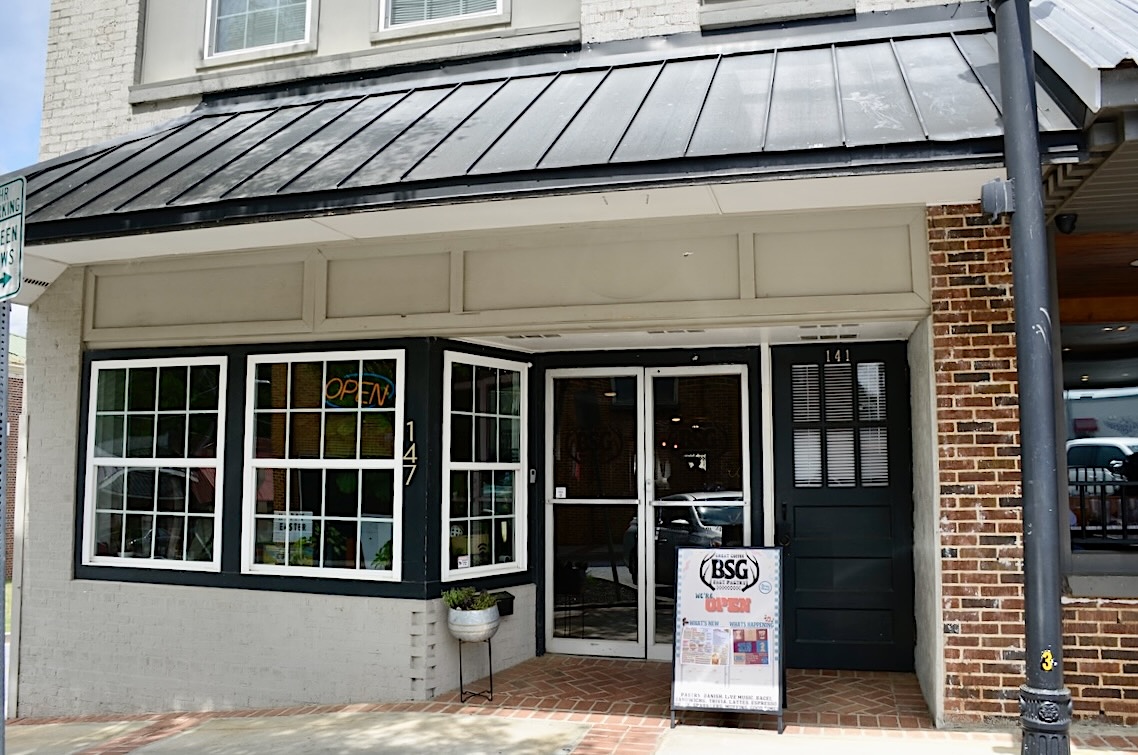
Noah tries to get the bigger boys involved in his electronic game, then retires to his chair to work the game on his own while the other boys pursue their own games and pastimes. Side by side, they motor on, never seeming lonely, whether or not others might think them so.
Dottie watches Noah as he assembles and disassembles a Rubik’s cube, then a pile of plastic construction blocks, and then a wooden kinetic toy. And then he goes through the sequence a second time, and a third.
Just another Saturday.


